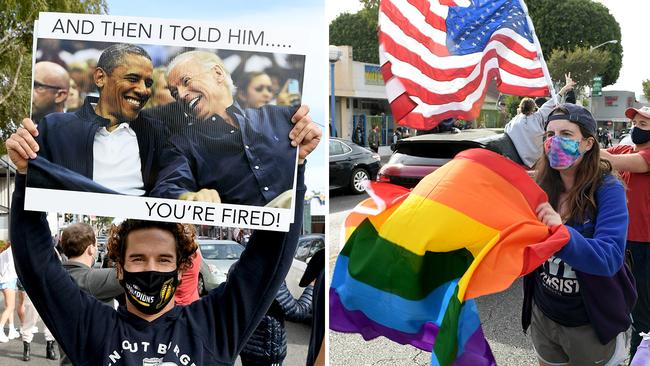
Republican President Donald Trump didn’t bother campaigning there, even though there are 51 electoral college votes at stake.
California is the biggest state in the US, population wise, with about 40 million inhabitants. Interestingly, the state’s population has shrunk recently as some Californians have hotfooted it to reside in Nevada, Arizona and Texas, among other places. Most of these domestic emigres don’t have university degrees.
When I was growing up, every second song seemed to include California in its title. California Girls, California Nights, Goin’ to California, California Dreamin’ — the list goes on.
It was seen as the land of opportunity and dreams. Breaking from the stultifying cultural barriers of the past, it was the place where ideas became reality and the living was easy. The weather helped.
The entertainment industry, centred around Hollywood, flourished and hi-tech enterprises congregated around Silicon Valley. Today, some of the best universities in the US are still located in California.
While it has one of the highest average per capita income levels in the US, there is a wide gap between the rich and the poor. Indeed, income inequality is higher in California than in most other states.
This divide is also geographic, with the residents living close to the coast generally better off and lower-income residents, many with few educational or other skills, clustered in various inland settlements. Migrants have tended to flock to California, in part because of the existence of sanctuary cities that offer protection.
Electricity prices in California are among the highest in the country, as are state income taxes. Property prices are high, particularly along the coast. There is a concentration of homelessness in some of the big cities, particularly San Francisco and Los Angeles.
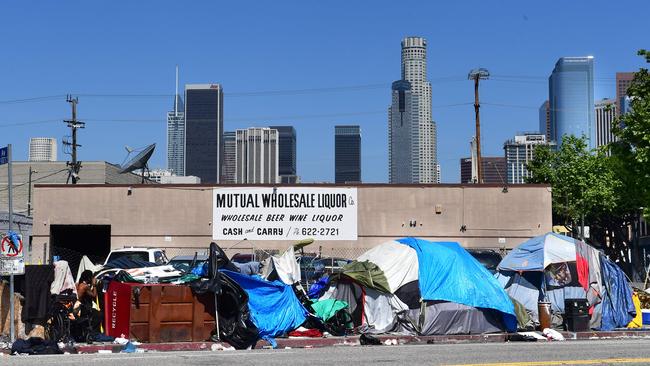
There was an attempt by the Californian government to build a high-speed rail network that ran many billions of dollars over budget and was never completed.
Progressive politics dominates California at all levels. Governor Gavin Newsom, a member of the Democratic Party, was previously lieutenant governor of California (2011 to 2019) and before that was mayor of San Francisco.
His policy initiatives have included abolishing capital punishment, legalising marijuana and watering down certain criminal offences (for theft under the value of $US1000, for example).
He attended the 2019 UN Climate Action Summit in Madrid, declaring California to be a climate leader in its own right. And this year he signed an executive order ending the sale of new petrol-powered passenger vehicles from 2035.
This last summer has put the climate resolve of the Californian government under pressure. The combination of bushfires and rolling electricity blackouts has tested the patience of many Californians.
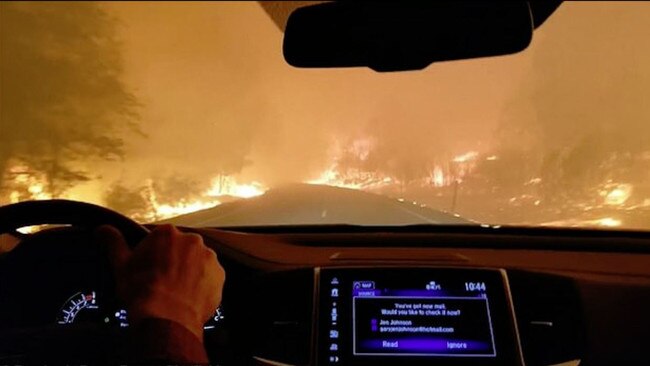
It got to the point, the Governor declared, with no hint of irony: “These blackouts, which occurred without prior warning or enough time for preparation, are unacceptable and unbefitting of the nation’s largest and most innovative state. This cannot stand. California residents and business deserve better from their government.” But renewable energy has been heavily promoted by the state government over many years (about 30 per cent of electricity comes from this intermittent source). There has also been a state ban on the construction of any new gas-fired power plants, as well as political pressures for the early retirement of existing ones.
With the blackouts, there was insufficient power available to import from other states, the means by which California typically fills its unmet demand.
Another recent initiative of the state is the so-called gig worker bill or AB5. It became law at the beginning of the year and requires companies using independent contractors to reclassify them as employees. A few exceptions were granted initially.
The intention was to restrict the growth of independent contractors whose employment is not governed by the labour standards that apply to employees — think here minimum wage, health insurance, leave entitlements and the like — and to allow many independent contractors to become employees. It was specifically directed at app-based drivers and delivery workers, including those using the Uber and Lyft platforms.
The timing could not have been worse, coinciding as it did with the economic impact of COVID-19. Freelance journalists and writers found their livelihoods imperilled as the law restricted them to writing no more than 35 pieces of work a year for a single client, at which point the client was meant to offer them work as employees.
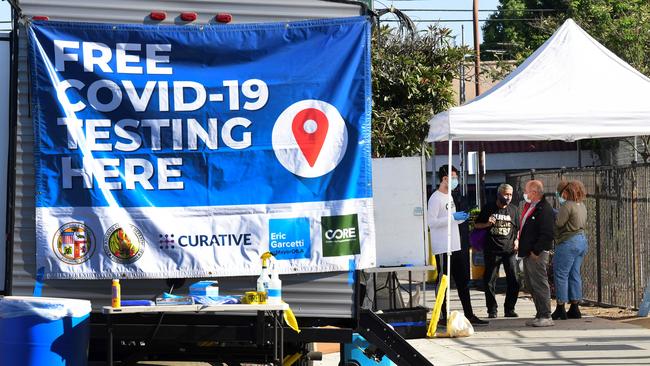
The government was forced to greatly enlarge the list of exemptions to deal with these unintended consequences, although app-based drivers and delivery workers were not in the list.
A number of court cases hadn’t clarified the situation. The technology companies argued that they merely provide the platform that enables these workers to contract with customers. At various stages, the companies threatened to quit California.
Proposition 22 then emerged, which exempts Uber and Lyft from AB5, and which was put to Californian voters last week along with 11 other propositions. Backed by serious money from these companies, Prop 22 gained majority support. What this means is drivers who use Uber and Lyft will be able to act as independent contractors in California. Unfortunately, the proposition doesn’t entirely clear up the ambiguities in the law.
Then there was Prop 16, which sought to remove that part of the constitution that states that “the government and public institutions cannot discriminate against or grant preferential treatment to persons on the basis of race, sex, colour, ethnicity or national origin in public employment, public education, and public contracting”.
While the change was championed by the Californian legislature, the proposition was defeated and hence this attempt to allow affirmative action was thwarted.
The proposition that property taxes on businesses should be raised was also voted down, as was the proposition cities should be allowed to impose rent control.
Viewed from afar, it’s easy to jump to the conclusion that all Californians — at least superficially — are deeply woke, committed to progressive ideals and consumed by identity politics. But judging by the outcomes of the propositions last week, the reality is more complicated.
When it comes to bread-and-butter issues, most voters are very practical, concerned about the economy, the cost of living and a fair go for their children.


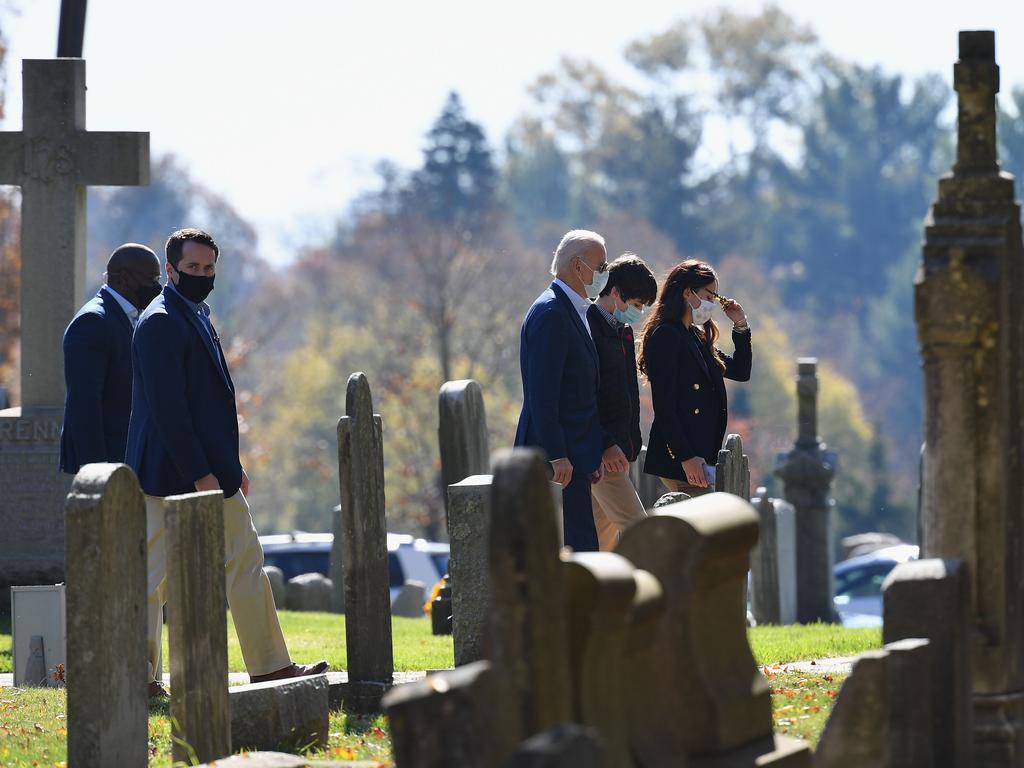



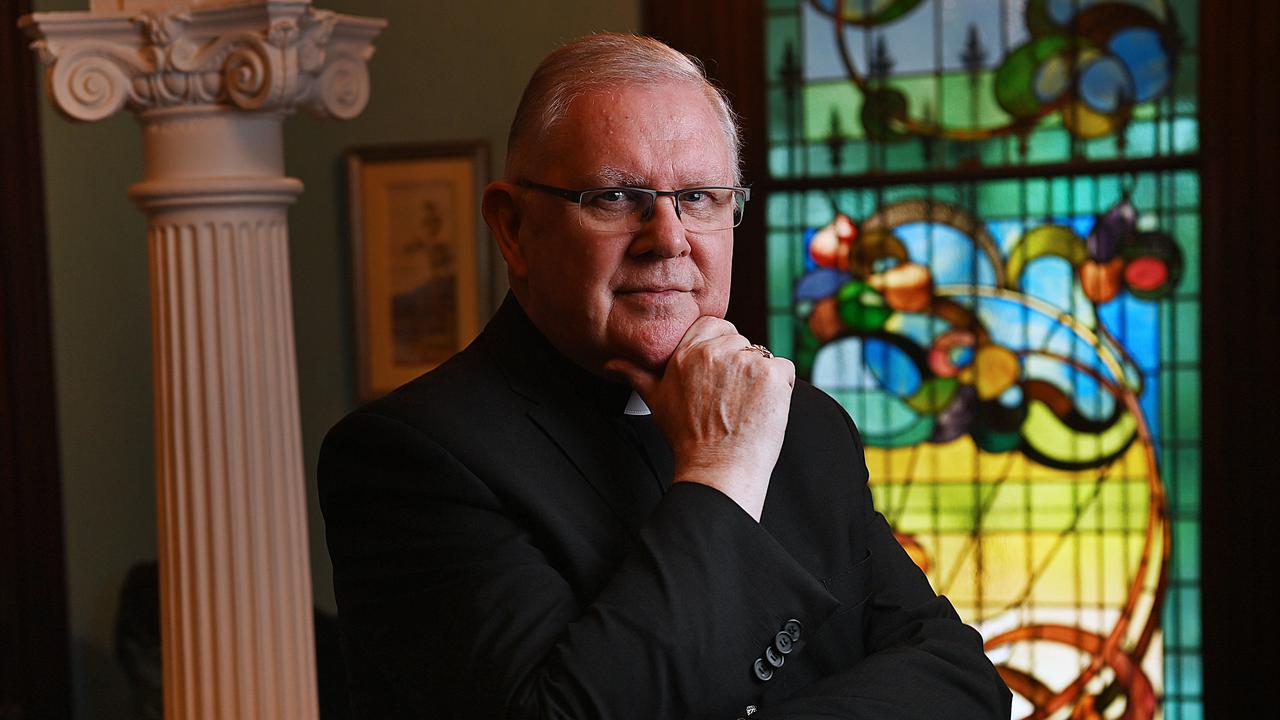

In every political map of the US, California is solid blue. It’s a Democrat stronghold to the point that commentators and psephologists pay little attention to it when picking a presidential election outcome.